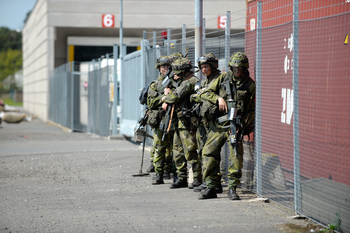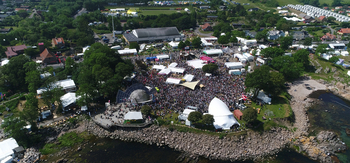What effect will border controls have on Nordic co-operation?

Border patrols were supposed to be a temporary measure in an extraordinary situation. Now, however, it looks as if the flow of refugees to the Nordic Region may continue for some years to come, hence the need to discuss the effect of border controls on co-operation.
We have enjoyed freedom of movement in the Nordic Region for over six decades. This is no longer the case. On 4 January, Sweden introduced ID checks on the border with Denmark. Morgan Johansson, the Minister for Justice and Migration, has announced that Sweden will continue border controls for another 30 days and cannot rule out the possibility of them lasting longer.
Controls need to be discussed
“Border patrols were supposed to be a temporary measure in an extraordinary situation. Now, however, it looks as if the flow of refugees to the Nordic Region may continue for some years to come, hence the need to discuss the effect of border controls on co-operation,” says the President of the Nordic Council,” Henrik Dam Kristensen from Denmark
The other Nordic countries may follow in Sweden’s footsteps. In Norway, the government is debating whether to amend legislation so that it would be able to close its border to asylum seekers arriving via Sweden if the situation becomes critical.
Nordic controls?
Nordic border controls are another option. The Danish Prime Minister, Lars Løkke Rasmussen, is an advocate of joint Nordic border with Germany, a stance supported by the Sweden Democrats, who are also in favour of joint controls on the outer borders of the Region.
“I note that voices have been raised in favour of the Nordic countries working together to control the Region’s outer borders and this may well prove to be a controversial theme when we gather for the Session in Oslo in April,” Kristensen says.
Not without consequences
At present, the border controls between Sweden and Denmark affect tens of thousands of commuters, and may well have social-economic effects. Open borders have been an economic success, generating an added DKK 5+ billion for the Danish economy. The Swedes have also benefited from jobs in Denmark ay a time when fewer have been available in Sweden.
Further information about the Theme Session in Oslo:




